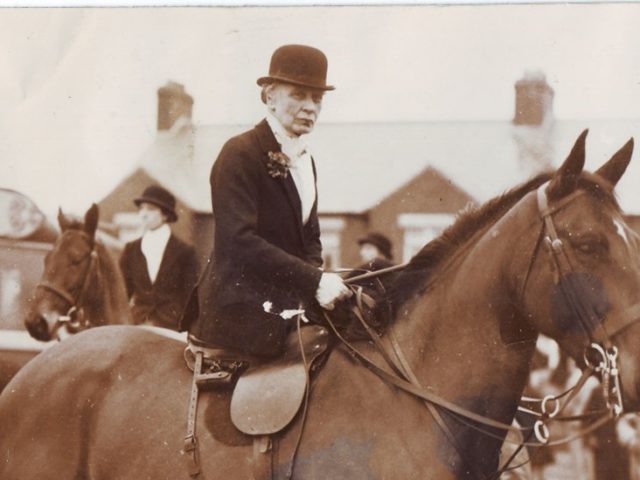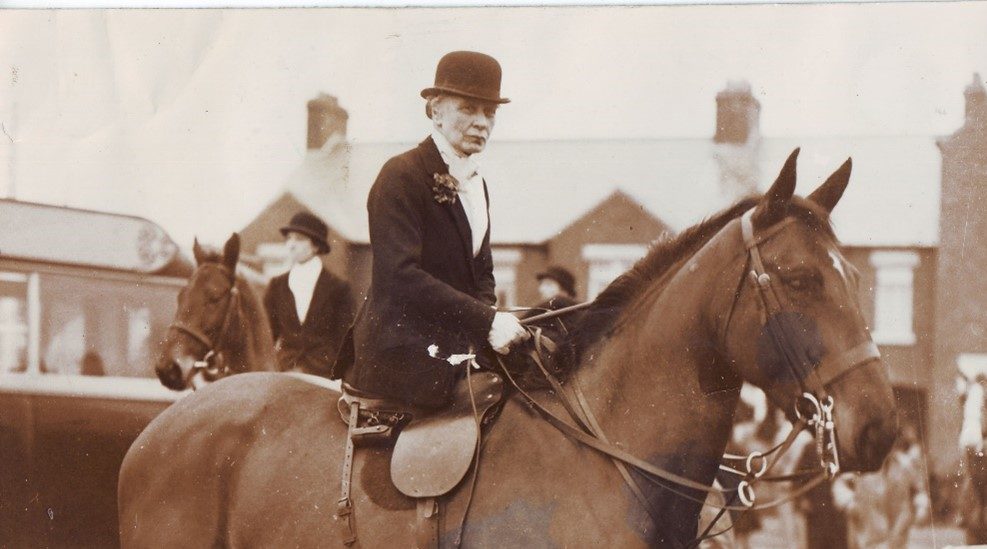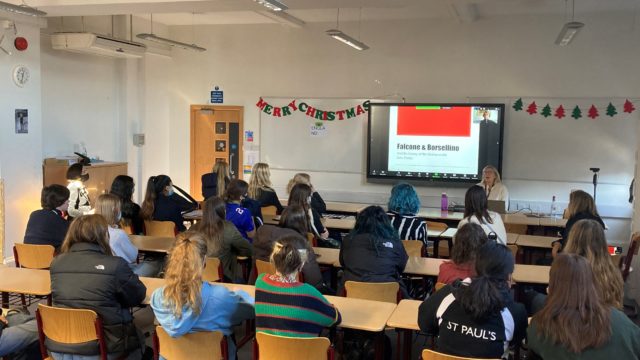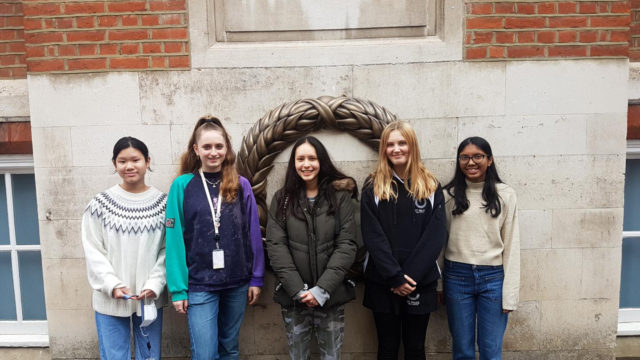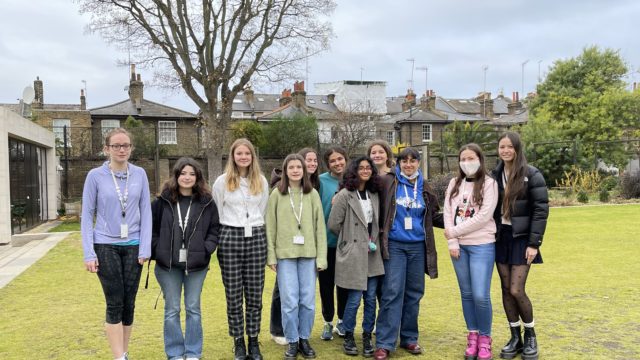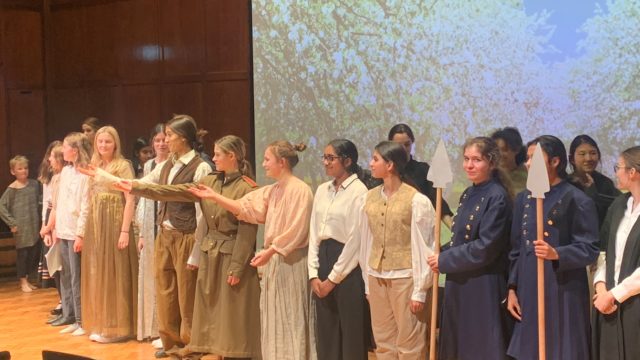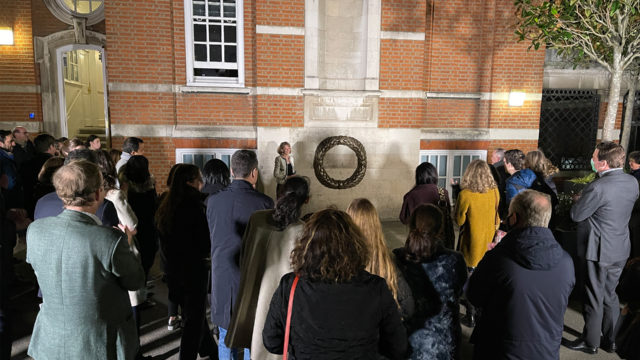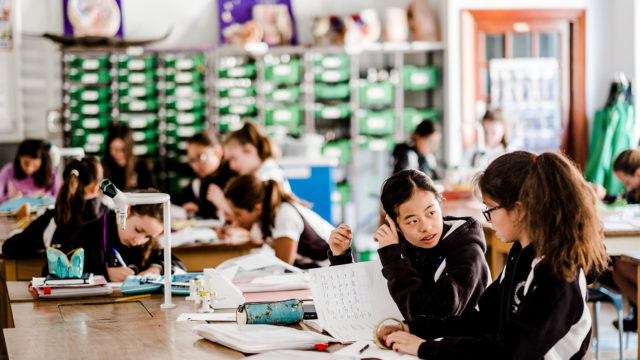From the Archives: A Christmas Party at Bute House
From the Archives: A Christmas Party at Bute House
Just five days after the November Armistice, 1918, the Paulinas threw a party for the children of Belgian refugees, most of whom had fled to Britain after the German invasion of August 1914. During the war, the governors of our school had purchased Bute House and its 5 ½ acres for £34,000 (May 1916), intending to turn the grounds into a playing field and to use the Georgian mansion for boarding. In the meantime, though, the house provided accommodation for a Belgian school. As the war ended, the refugee families were planning to return home, so the Paulinas gave their children a final treat before they left and before the mansion was occupied by the boarders.The dining room was hung with allied flags and the Union Jack and the Christmas tree was adorned, to the astonishment of the pupils, with electric lights instead of candles. After tea and cakes, there was Sally go round the Moon (which the players switched direction when the music changed) – ‘most exhausting!’ we are told, dancing to the hornpipe and singing. Once the Branbançonne and God Save the King had been sung, Paulinas gave three cheers for the Belgians and their guests three cheers ‘for the English’ (what happened, one wonders, to the Irish, Scots and Welsh?). Still in the Christmas spirit, the Seventh and Eighth offered their own entertainment to the domestic staff: a knock-about comedy, enlivened by the ‘dancing belles of Cairo’.
As the issue of Paulina, which described these events appeared only four months after the Armistice, the war still dominated the contents. There was a letter from Mr Holst, who had departed to serve with British Expeditionary Force in Salonica (Thessaloniki) armed, as he wrote, with fifty pounds weight of musical scores and a box of tools to repair pianos. And Theodora Cole (SPGS 1904-11) told the Paulinas about her work in the Motor Transport section of the Royal Army Service Corps: ‘The life of a Transport driver is thrilling and very healthy. Out in all weathers, from 8am to 8 or 9 at night … we have no leisure to think of [Spanish] influenze or such-like ills…’.
Dr Howard Bailes
